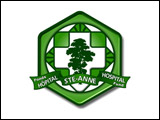Manitoba Health and Healthy Living is reporting 163 new confirmed cases of H1N1 flu this past week based on positive lab tests from Cadham Provincial Laboratories. This brings the Manitoba total to 458 reported laboratory-confirmed cases.
As of June 22, there were 37 patients on ventilators in intensive-care units with severe respiratory illness in Manitoba. Since the first H1N1 case, a total of 49 patients have been admitted to intensive-care units; 21 of these have had a confirmed lab test of H1N1. The others are suspected cases that have not yet met current national case definitions.
While it has been estimated the vast majority of the individuals in Manitoba who have been infected with H1N1 have recovered without specific medical care or hospitalization, all people who are experiencing flu-like symptoms should stay home from work or limit contact with others as much as possible to prevent the spread of illness.
If you are experiencing flu-like symptoms and you are concerned that you may need advice or care, do not hesitate to contact your health-care provider, visit your nearest health centre or call Health Links–Info Santé at 788‑8200 or 1-888-315-9257 (toll-free).
If you have symptoms of more severe or serious illness such as shortness of breath, dehydration or severe weakness then you should get prompt medical attention. If other symptoms such as coughs or fever get worse, seek prompt medical care. Even if you have already seen a health-care provider and serious symptoms appear, your symptoms get worse or you do not get better as you normally would (usually within two to three days), then you should again seek prompt medical care.
Test results for viruses, such as H1N1 influenza, are not required by health providers to make decisions about care. Health providers have current guidelines for practice in this situation including recent updates issued this week.
In response to the call to action for health-care workers in northern Manitoba, there have been over 50 volunteers including physicians, medical residents, nurses and nurse practitioners. So far, 13 have been deployed in northern communities and scheduling will continue. This is additional medical support to augment normal northern staffing.



